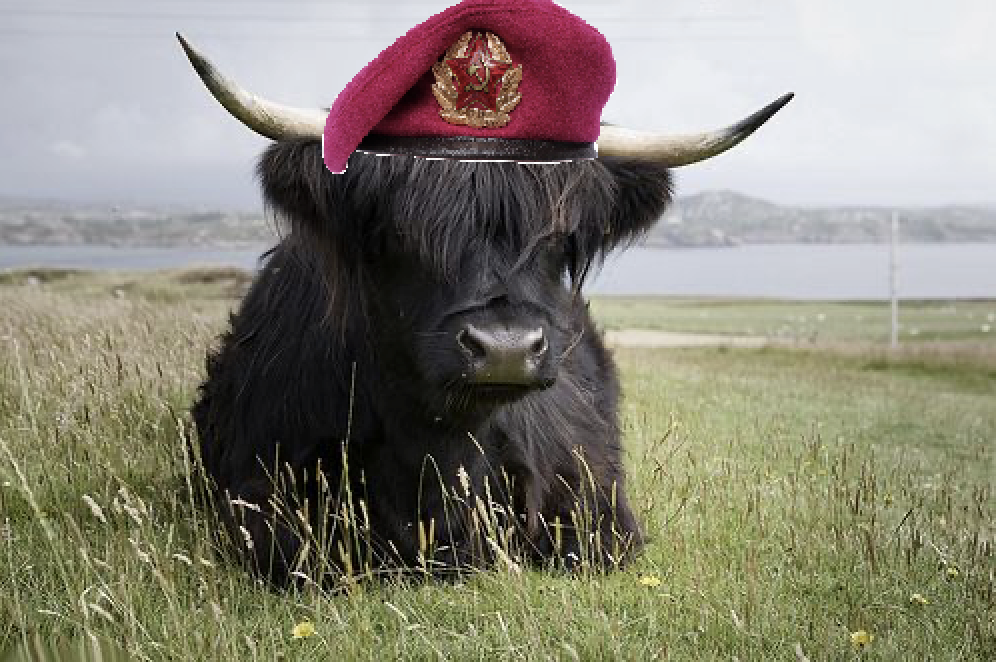So, I’m in high school and I’ve got to make a simple essay contextualizing on the USSR for our reading of “Animal Farm” by Orwell. Are there any good articles, sites, etc. which I can use? (I apologize if this has been asked before or if there’s a megathread or something)
If you want something a little less dry and history book-like and a little more personal try reading Anna-Louise Strong’s This Soviet World. Written in 1936 she actually had a first hand view into what was happening in the Soviet Union at the time.
You can find more of her works on her time in the Soviet Union and later in China (her work on Tibet especially is an excellent resource) here: https://www.marxists.org/reference/archive/strong-anna-louise/
Great then, I think including thoughts on actual people who got to actually see the Soviet Union will help with dismistyfing things, which is exactly what I’m looking for my essay. Thank you!
Prolewiki has an extensive list of reading material about the USSR:
Hope this helps!
Thanks! Didn’t know ProleWiki had stuff for USSR history.
Always check for sources they use. 90% Soviet archives are open now so historians can easily access them. If, a historian uses primary sources from the Soviet Union you can read them. Don’t read historians that use only NATO countries archive and some freaks use CIA as a primary source.
Yeah, anything involving the Soviet Union needs extra attention to the sources because of amerikkka’s influence.
You can’t beat reading, but the Hammer and Sickle podcast is great entry level content and provides sources for further reading.
I’ll try and listen to that later, thanks!
One thing that might help is reading A Critical Read of Animal Farm as well as On Orwell. These might help your essay by giving a good analysis of the real themes and personal failures of Orwell as a person.
Holy shit, I really needed something to use to criticize Orwell, because I wanna break his bitter anticommunist ass with facts, thanks man!
No problem, and good luck on your essay!
I will really need luck to survive my classmates lmao
Try to bring sources, and don’t try to go too hard. For example, in the critical reading of animal farm, the author writes about how above all it reveals Orwell’s aristocratic disdain for the working class. If you want to defend and contextualize the USSR without provoking ire, it’s best to highlight Orwell’s miserable history as a homophobic, anti-semetic fed, sexual assaulter, and tie that directly to his work. You can also tie in how the Soviet Union at the time was coming out of a chaotic civil war and trying desperately to build up a modern country while heavily sanctioned.
An quick glimpse into early Soviet history can come from John Reed’s 10 days that shook the world and China Miéville’s October: The Story of the Russian Revolution.
If you want more quick stuff, I’ve spent the past 5 years hoofing and hollering about Stalin and the early Soviet union on hexbear so you can pick and choose what you need from my user history. It’s filled with quotes with book sources, articles, etc.
If you need anything more specific feel free to ask and I can look around
Oh, thanks, I appreciate your offer, but with what you and everyone else recommended I think you won’t need to look around for stuff. Once again, thanks a bunch!
For something approachable by liberals, which will be your teacher and classmates, newer works by R. W. Davies will work. He is an actual historian who focuses on primary sources. Reading him will rob the project of its political character, but in many ways that is probably to your benefit on this essay. Unfortunately I am basically recommending you 7 long books and that is probably not practical, but maybe you can skim them and focus on certain parts.
Personally, I was happy to annoy my teachers so I would probably contextualize the USSR as through a cold warrior’s view, with Orwell being an anticommunist who betrayed the people around him for being gay, socialist, communist, etc. Animal Farm is not a historical work, it doesn’t describe anything real at all, it literally a fiction intended to denigrate communists and the USSR without using one lick of factual material about it.
Animal Farm cannot be contextualized by just the USSR itself because it does not describe the USSR as a character or setting. It only reveals the mind of the author and how they envisioned their own politics as against those of the USSR, with his very limited understanding in both domains. His alignment against the USSR traces the development of the cold war itself, with him adopting others’ terms for the (suddenly evil after being a valued ally in WWII), for example, “totalitarian” state. The fact that he tried to get people around him blacklisted through a government contact would never be totalitarian, of course.
Orwell was poorly educated politically and in terms of current events. His characters are a cartoonish fiction that reflects this. So if someone says, “oh that one pig is Stalin”, they are much less correct than someone saying, “that pig is how Orwell wants you to think of Stalin”. Because the two actually bear no relation to one another. So this is why the best context us actually anticommunist propaganda and it tropes rather than the USSR in reality.
I’ve been really skeptical about this essay from the beginning, Orwell’s books are (like you said) notoriously wrong. What I personally strive for in this is to provide a view less influenced by the west, and breaking down this tyrannical view of the USSR. Anyhoo, thanks for your reply!
Nice! Finding a view separate from the West may be difficult if you want English-language materials, unfortunately. But there are good English language historians skeptical of cold warrior narratives. I don’t know why I didn’t mention him originally, but you may find Domenico Losurdo very useful for this essay. His book(s) on Stalin will be super relevant as they juxtapose Western propaganda about him and the USSR during the period when Animal Farm was written versus firm historical realities.
Noj Rants’ youtube channel is a good example that shares a detailed resources. Also, he’s a historian so you can check his works.
Taking a brief look, it seems he’s loved by Trots, which gives me pause. I don’t doubt the quality of the research, but the fact that there seems to be few MLs in the comments seems off. Is it just that he tends to only highlight the real issues with Stalin, without contextualizing them with the real good, leading to a bunch of Trots loving his content?
He’s not a Trotskyist he’s a more into Sverdlovist. I think he’s making a video about documents not about ideology. Even though, He’s criticizing Trotsky in the Stalin’s falsification school video. Stalin and Trotsky were using Soviet history according to their propaganda. He never says Stalin bad or Trotsky is good. Also, his documents from straight out of the Soviet archives which I can confirm; you can check copies of the original documents too. I think his efforts about to debunk Soviet monoism which I think is fair.
If you watch his Sverdlov video he’s debunking Trotskyist too.
Gotcha, thanks. Just wanted to know how critically to watch the videos, it’s obviously good to have more thorough investigation, but the huge amount of Trots in the comments threw me off a bit.
Trots are gonna find a document and they will use it according to their agenda like they ever do. That’s why, they’re knit picking some good ones but ignore the bad ones. I think Stalin and Trotsky debate is silly. Even though, Trotsky said NEP wasn’t feasible people are unhappy and 3 years later Stalin saw the NEP results and he decided to stop NEP and then started to collectivization. So, in this case Stalin already did what Trotsky said.
I think main issue with Stalin and Trotsky debate was their background. Stalin was a serfs son from country side, uneducated but natural and quiet; Trotsky was coming from a educated family from the city, intellectual but arrogant.
If, we gonna say a Lenin-like heir that’s Sverdlov not Trotsky or Stalin. Both admitted to him and took orders from him when Lenin was not in his position
I don’t have my sources at hand right now, and do not have the time to dig them up right now, but one thing that you can try to investigate is how the USSR in particular and planned economies in general provide/provided guaranteed housing and universal healthcare (i.e. unlike capitalist societies, they did not force people to live and die on the streets and did not deny people the healthcare that they needed).







